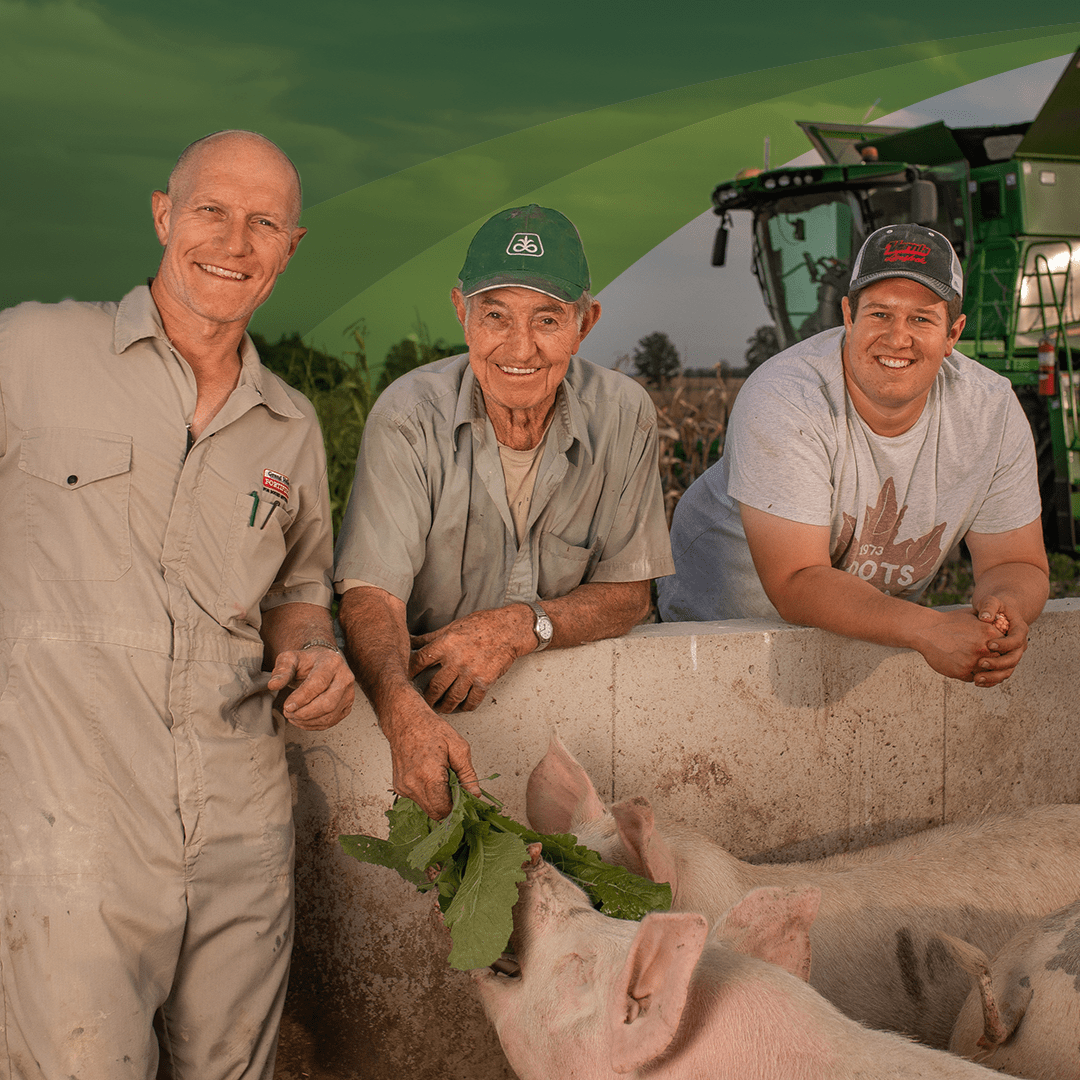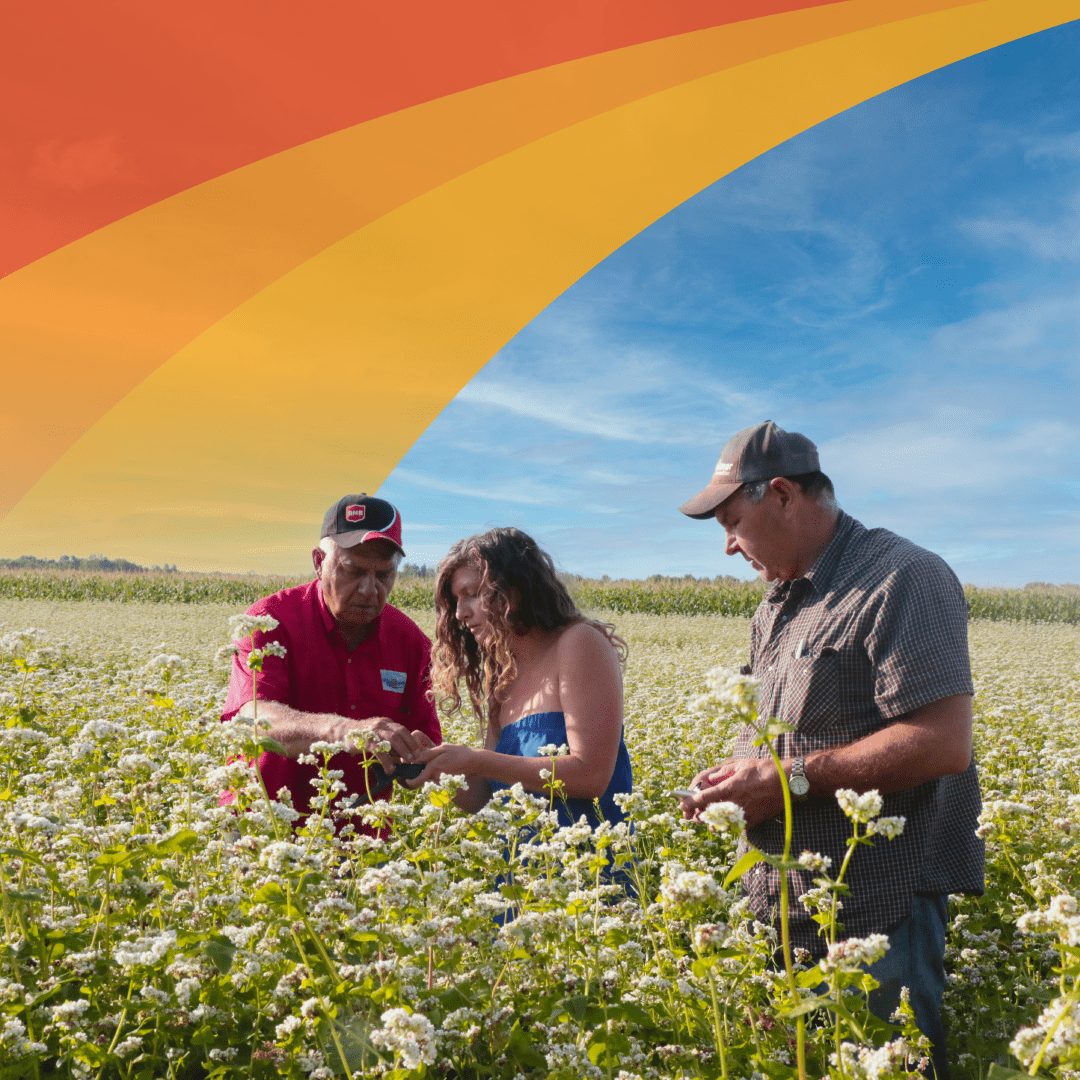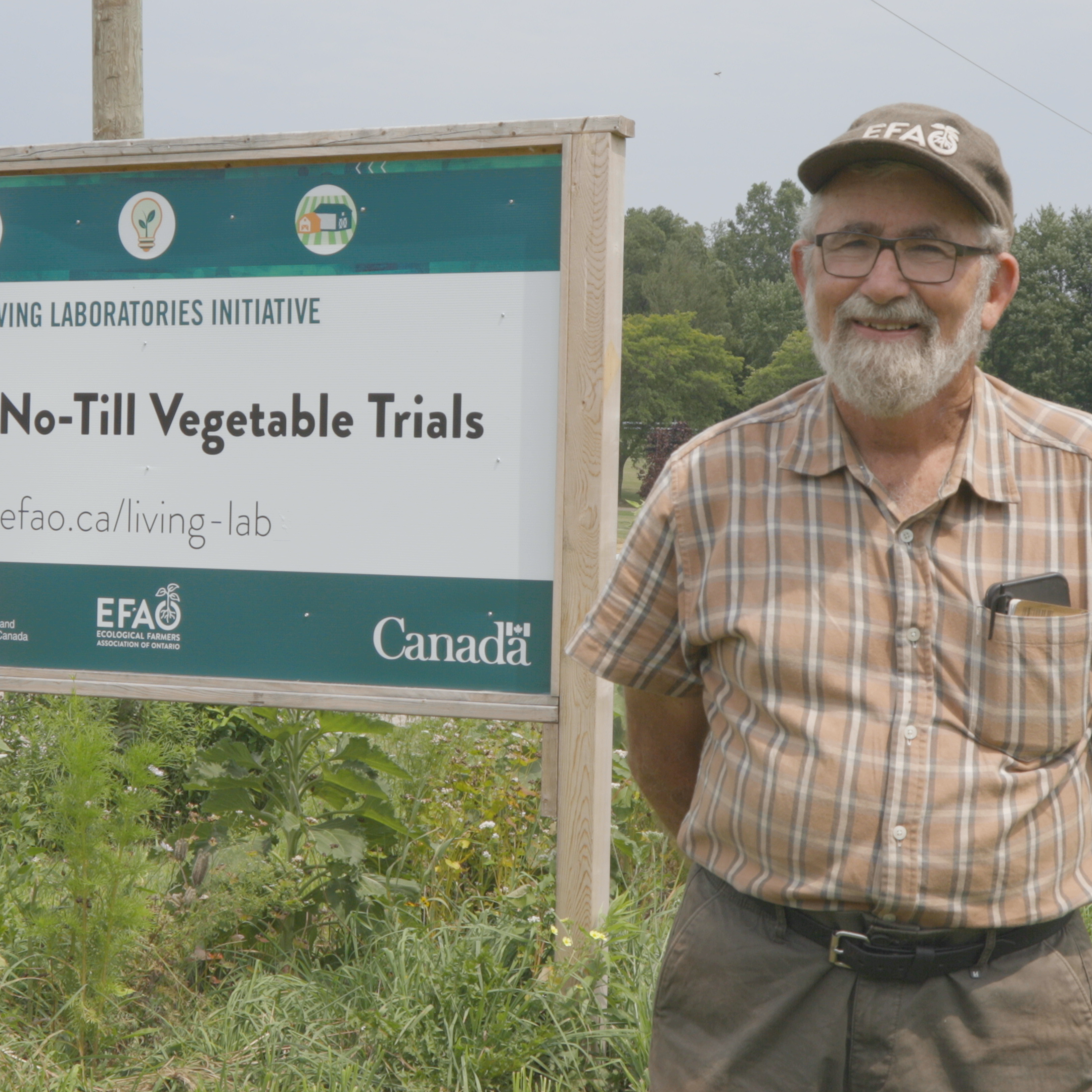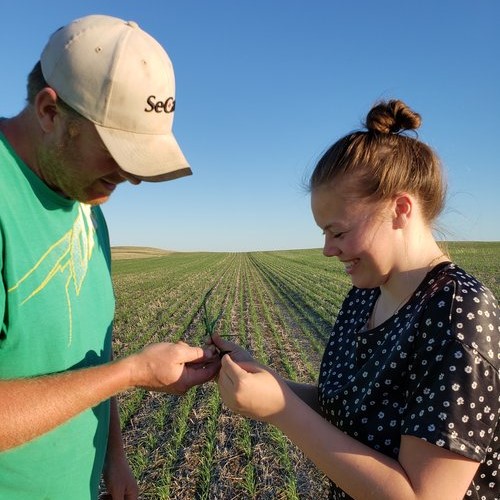CLIMATE
Ecological, regenerative and climate-friendly farming practices help farmers mitigate climate change through reduced greenhouse gas emissions and carbon sequestration. These practices help farmers become more resilient in the face of a changing climate, through improvements to soil health and on-farm biodiversity.
EFAO supports farmers in mitigating and adapting to climate change through a variety of farmer-led programs and activities.
As a founding member of the Farmers for Climate Solutions coalition, EFAO advocates for policies that can help to accelerate emissions reduction on Canadian farms. Through ongoing educational events, the EFAO Conference, and initiatives like the Small Grains Program & the Farm Resilience Mentorship Program, EFAO facilitates farmer-to-farmer education, and supports the implementation of ecological farming practices. Research such as the Living Lab – Ontario project and Farmer-Led Research Program enable Ontario farmers to identify the most effective ways to implement more climate-friendly farming practices on a wide variety of Ontario farms.
FaRM Program
The Farm Resilience Mentorship (FaRM) Program is a mentorship program to scale adoption of on-farm climate-friendly practices across 2 million acres of farmland in Canada.
From the Blog
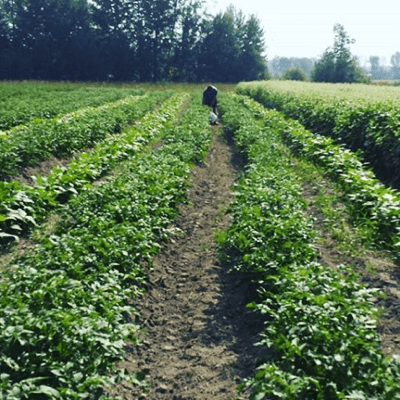
‘Feeling Good’ in a Changing Climate: The Story of Isabelle Spence-Legault
Written by Victoria Lesy, Matt Orton, Abdul-Rahim Abdulai, Nicole Unterlander, Abigail Van Reisen from the Arrell Food Institute, University of Guelph; in collaboration with Thorsten Arnold, Ecological Farmers Association of Ontario. This story is part of a...
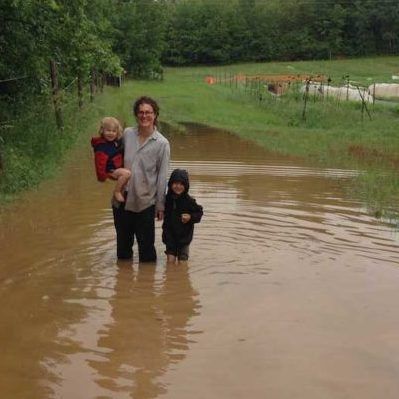
An Ontario Farmer Facing the Perils of Climate Change: Kristine Hammel
Kristine Hammel and her husband know from first-hand experience the strain that climate change puts on farmers. Kristine runs a small-scale diversified farm with her husband, Thorsten Arnold, in Grey County, Ontario. They have seen first-hand the impact climate change has had on their farm. For Kristine, it is all about being innovative and devising new practices to better cope with the situation, while ensuring their operations have minimal environmental impacts.

